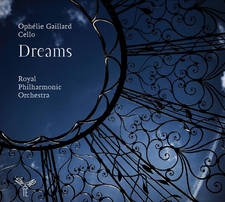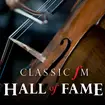Bastille ‘ReOrchestrated’: What happens when you combine a hit pop song and a classical orchestra
24 February 2021, 15:33 | Updated: 24 February 2021, 16:00

Bastille's Dan Smith on combining pop songs with a classical orchestra
Classically-trained Bastille frontman, Dan Smith discusses the band’s ambitious project to rearrange their hits for symphony orchestra, and why the “narrow gatekeeping” of musical genres is over.
“We wanted to show off the versatility of an orchestra, and how that can mesh with pop and rock melodies,” says Bastille frontman Dan Smith. “This was a way to collide what we do with the classical world.”
Pretty exciting words, coming from one of today’s biggest pop chart-toppers. Smith is referring to his band’s project ‘ReOrchestrated’, a symphonic dream to transform their pop belters into classical splendours that has been captured in a documentary on Amazon Prime.
It comes, entirely wonderfully, as the ‘pop-classical crossover’ is getting a renaissance moment in the musical mainstream (check out the Vitamin String Quartet’s pop covers for Bridgerton, if you haven’t already obsessed over them, just here).
The idea for Bastille’s ‘ReOrchestrated’ was born at a charity gig at London’s Union Chapel in 2017, when the band deployed a handful of gospel singers and a string quartet to give a classical dusting to their delightfully ear-wormy ‘Pompeii’.
The four strings were then scaled up to 20, and the chapel became London’s Royal Albert Hall. Soon, the four-piece band were playing with a full philharmonic orchestra at Hamburg’s breathtaking Elbphilharmonie concert hall, led by renowned conductor and Kristjan Järvi – of the Järvi musical dynasty – and a 12-piece choir (watch above).
We talk to Bastille’s Dan Smith about the beauty of colliding pop with a classical sound.
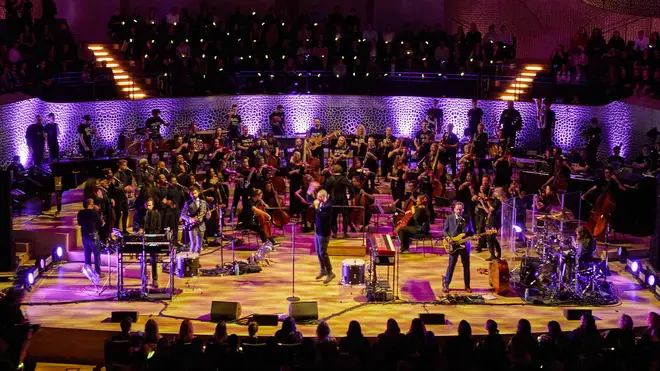
How did the ‘ReOrchestrated’ project come about?
When ‘Bastille’ was born, they were an indie band with a small but fiercely loyal fanbase who would turn up to watch them in surprise pop-up performances. Back then, there were no stage tricks, no evocative visuals, just their guitars and keyboard.
“A lot of doing these ReOrchestrated shows was about a return to real, acoustic instruments and a way to bounce back from having gone very big in scale, very visually led,” Smith says.
There’s a wonderfully vivid moment in the documentary where Smith recalls the time in school orchestra, when he accidentally sat on – and crushed – his violin and was forced to play on a ¼-size instrument for the rest of the rehearsal, to his classmates’ mirth. I ask if this experience made Smith pine for those early musical years. Not exactly…
“I learned piano as a child. But as soon as I started writing songs and playing by ear, I really let go of my practice and any skill. I did also learn the violin as a kid as well, but that didn’t end well,” he says with a chuckle.
For Smith, reorchestrating songs was more about subverting the framework of a three to four-minute hit. “They say with pop music that you know a song is good if you can take everything away and just sing it with the chords. And that’s what we wanted to strive for – this was a way to collide what we do with the classical world.”
Read more: 27 pop songs you didn’t know were inspired by classical pieces >
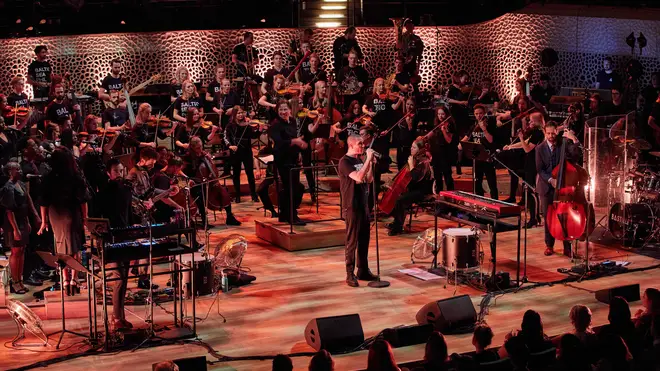
What does ‘ReOrchestrated’ say about the landscape of musical listening?
Bastille’s collision of genres is a welcome reminder to the world that classical music simply was the pop music of its day. From Stravinsky’s Rite of Spring riot, to hysterical audience members literally removing their clothes at Franz Liszt’s piano recitals, classical music created as much controversy and excitement as Cardi B rapping next to a 150-pound snake in 2020.
“Yeah! Exactly,” Smith enthuses. “Those composers and soloists were the rockstars of their day.
“I think it is really interesting. A big part of us wanting to do this, was to show that music is music. And it will always cut through regardless of what instruments are being used.”
For Smith, the birth of streaming services and popularity boom of TV and film soundtracks has transformed the landscape of musical listening.
“It’s completely democratised now,” he says. “The narrow gate-keeping of previous years and decades has slightly withered away and left an opportunity – who would’ve thought that classical arrangements of pop songs would be so popular?
“Who would’ve thought a sea shanty would be one of the biggest hits of the year? There’s something quite brilliant and charming about how mad it is at the moment.”
Read more: Musically, what is a sea shanty? The history behind the songs flooding TikTok >
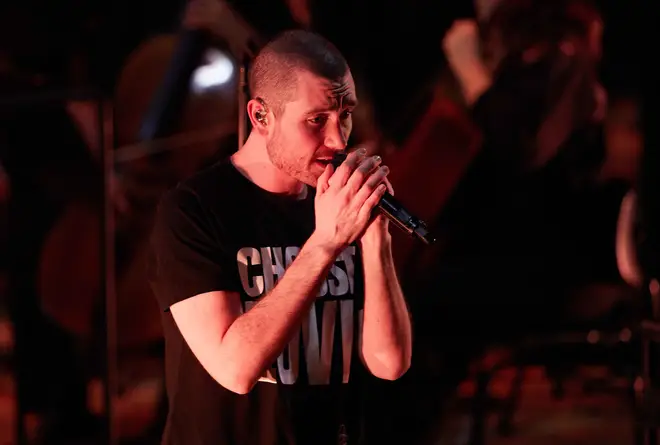
Would ‘ReOrchestrated’ have been able to happen post-Brexit?
It’s a period of huge change for the music industry, as UK musicians begin to navigate the realities of Brexit. At the time of the referendum result, Bastille were performing at Glastonbury. Smith later said he was “gutted” and “heartbroken” by the 2016 verdict.
In 2021, as the conversation around visas crescendos, Bastille’s 2020 Hamburg performance – a marriage of a British band with the Baltic Sea Philharmonic orchestra, and singers from all over the world – feels poignant.
“When we played that show in Hamburg, it was just pre-Brexit officially happening,” Smith says. “And we wanted the show to be a celebration of the community of Europe – a European orchestra, a British band and singers and musicians from all over the world. And we wanted it to be a celebration of what we’ve been lucky enough to have all of our lives so far pre-Brexit.
“And we were thinking a lot about how in a few months’ time, this kind of thing wouldn’t be possible in this form.”
Smith also touches on the show’s symbolic celebration of what was possible pre-Brexit, in a time of no paperwork, visa or cost worries – something new artists are currently having to navigate.
“We obviously are a big enough band to have an infrastructure and people who can help with all that stuff. But the real tragedy is for freelancers and smaller bands, it’s just a load of extra hurdles, costs and barriers in what is already a very, very hard job to get off the ground.
“And that’s such a shame. And with covid going on over the last year, that’s just been the rug completely pulled out from under the music industry.

Bastille - Warmth (Live From Elbphilharmonie, Hamburg / Amazon Original)
How does it feel to look back on this experience?
‘ReOrchestrated’ was Bastille’s last moment on stage together before the pandemic hit. “It punctuated the beginning of lockdown for us,” Smith says.
The singer describes the concert as a “bittersweet” moment to watch back. “It was just amazing to be even in a room with that many instruments. Even now, looking at those rehearsals, where there were 70-plus musicians involved, it’s mind-blowing to think that world existed just over a year ago,” he says.
“ReOrchestrated comes from a love of those instruments and that sound and how it makes us feel,” Smith adds.
“As I’m sure listeners of Classic FM know, there’s something so innately moving about hearing that many people making music together on that scale and there’s something really beautiful and emotional about certain string parts and how different instruments of the orchestra hit you.
“For me the film exists as a love letter to those musicians. To the scale and magnitude of playing among an orchestra as a non-classical musician is such a different world and such a privilege.”
